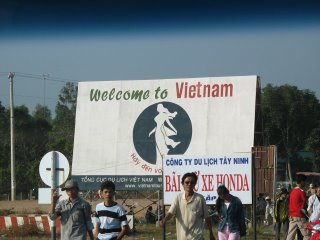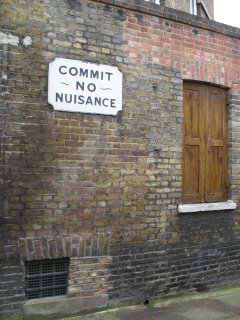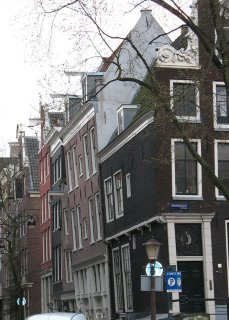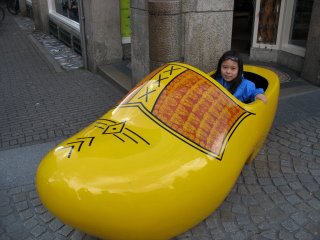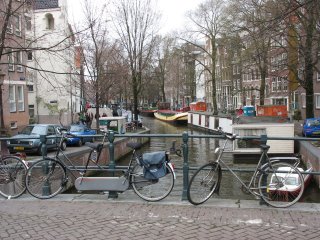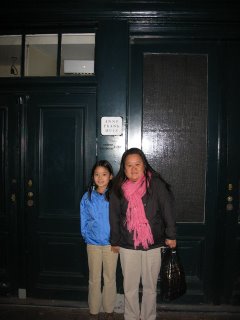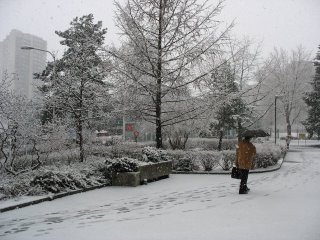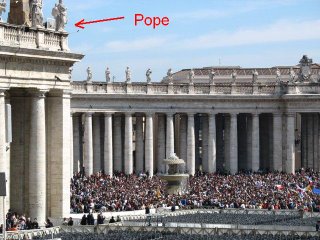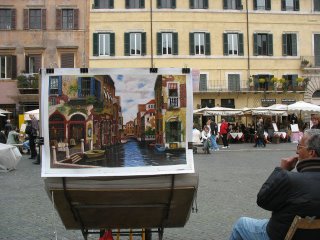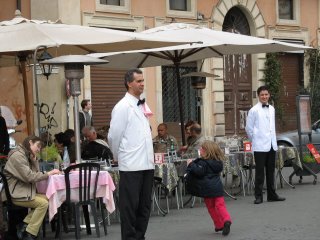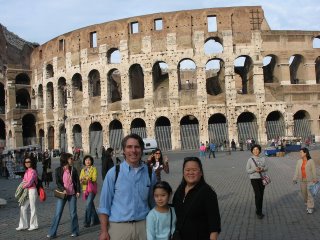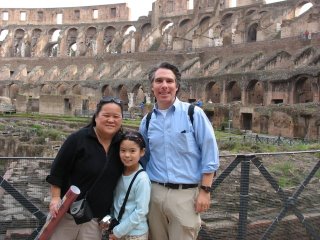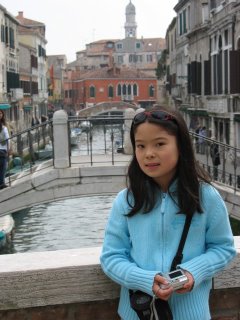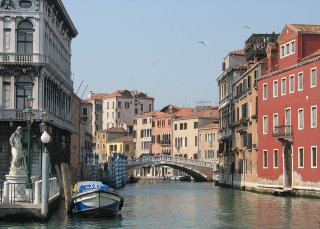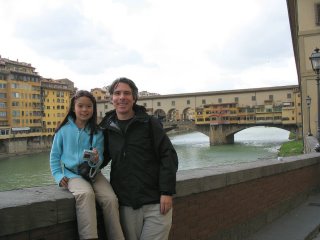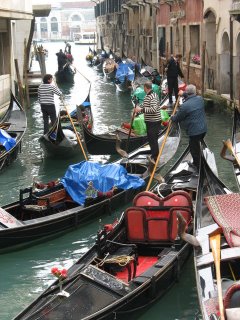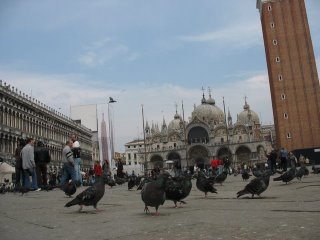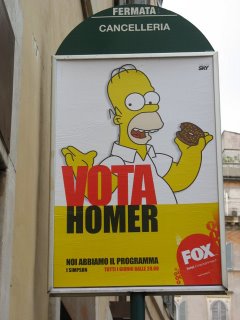London, United Kingdom: The Lingua Franca
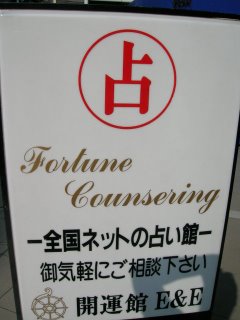
Has it been easy? Yes and no. We’ve encountered what we can best describe as degrees of spoken English. There are the situations where English is at a premium, and where your English speaking guide in Cambodia (or China) can recite historical facts about the famous site you’ve signed up to see, but is unable to answer an impromptu question, like “How bad is that Dengue fever outbreak?” or “Where can you buy a SIM card?” We’ve also been in situations where the hotel clerk can speak excellent English, but the only English-language channel on TV is CNN. We’ve come to expect the two extremes and can get by fine, but if we had a serious problem--say a medical emergency--there might be more reason to worry.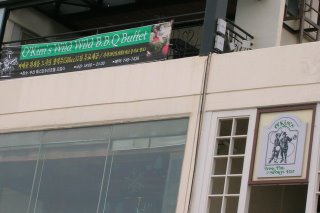
Conversations on the street in most countries we’ve visited are almost never in English, unless you are overhearing American/British/Ozzie/Kiwi tourists. Many conversations we’ve had with others in English (Andy speaks French and I speak German) are usually of a formal nature, not only because we are just meeting someone, but because Americans speak in a totally unique manner. We didn’t realize how much we missed it until we got into a conversation with an American guy in Florence and within minutes were casually speaking with the cadence and vocabulary that we haven’t heard since leaving our parents in January.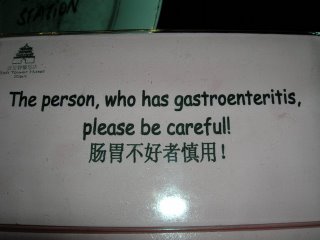
It seems that there are many debates going on in parts of the world about the dominance of English as a language for business, scholarship and tourism. We were talking to some Swiss people who were telling us that there is a big debate in the German-speaking part of Switzerland about whether to teach French or English first. Apparently all Swiss kids learn two foreign languages, one when they are quite young and one when they are in high school. There are some who worry that if they teach English first, there would be no motivation to later learn French, but there are some who think if they teach French first, they will undoubtedly learn English since the Swiss understand that it is the lingua franca.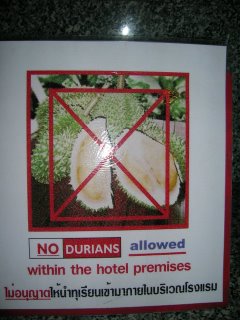
French President Jacques Chirac threw in his two euros on the subject when he walked out of an EU summit meeting as one of his fellow Frenchmen addressed the audience in English rather than French. After Chirac asked his colleague why on earth he was speaking English, he added that the use left him “deeply shocked” Yes, there is a dose of Gallic pride in Chirac’s reaction, but perhaps there is also a resistance to the effects of globalization where everything gets flattened to American or Asian terms as Starbucks, sweatshops and superhighways eradicate what makes places unique. And it’s a bit ironic because the term “lingua franca” literally means “French language” and originated when that country dominated world diplomacy.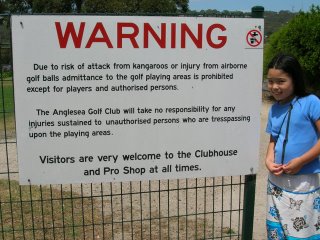
Why do we talk about this now? Because we have been in London since Easter, where we were feeling a bit relieved to be dealing with things in a language we totally understand. Yes, they speak English here, but we don’t usually hear the traditional English accent, but English with hints of Indian, Chinese, Eastern European or African influences. London is looking like New York City, where there are some 300 languages being spoken and in some areas of the city, English is a second language.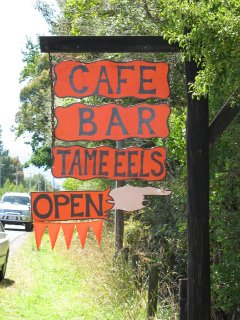
We have not been so acutely aware of the homogenizing powers of globalization until coming to London. I have remarked that there didn’t seem much to write about London because it seemed so much like home. With Starbucks on every corner (the only countries where we didn’t see a Starbucks were Vietnam, Cambodia and Italy!), the neighborhood pub advertising a Thai menu, and special three-day bank holiday sales, it’s felt like the closest thing to the US we’ve seen in nine months. Sure, they still do the changing of the guard here, the police wear the cutest hats, and the taxis have a unique shape, but this is not your grandma’s London. This is the economically strongest, most diverse, and forward looking European capital we’ve seen.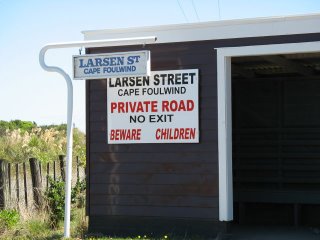
The London of yesterday is still accessible at the Tower of London, and the London of tomorrow is being embraced as evidenced by the Millennium Bridge and London Eye (brought to you by British Airways). But the London of today is hard to pin down, except to say that its expensive. London is fast becoming the most expensive city in the world, it currently resides as third most expensive behind Tokyo and Osaka Japan.
We’ve included a few signs we’ve found in English from around the world, some strange, some blunt, and some whimsical.